BorovskMapFebruary 17, 2007 Borovsk is about a one and a half hour drive from Moscow in the direction of Kaluga. After Naro-Fominsk you have a choice — Balabanovo (where they produce matches, but there’s nothing to see) or Borovsk (provincial town presenting anomalies). The local art scene only survives by belittling the Ukrainian car industry’s achievements: 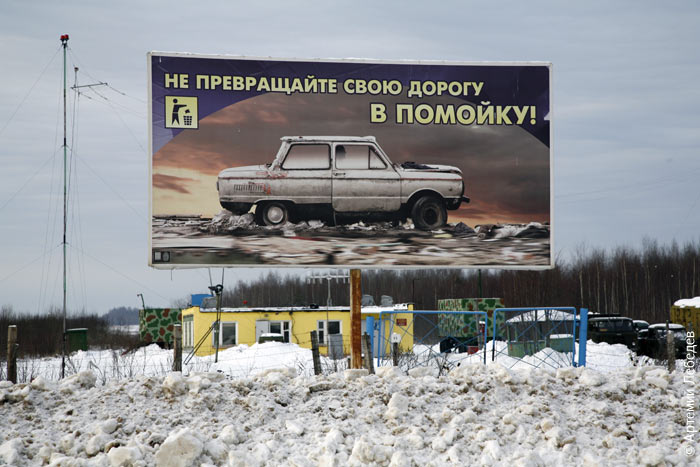 Borovsk sits atop several hills, which never fails to add charm. A quiet, provincial backwater. 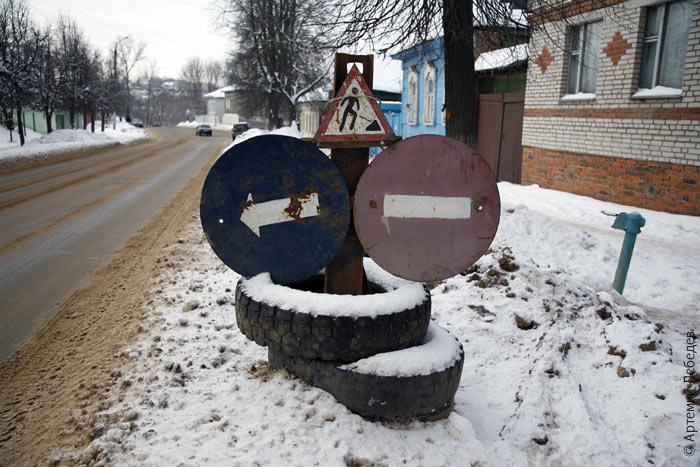 It’s ten degrees below zero out. Across the road from me a man with no coat on is knocking on the door of a café. He notices my camera and yells: — Take a photo of me! I’m getting married today! Sure. 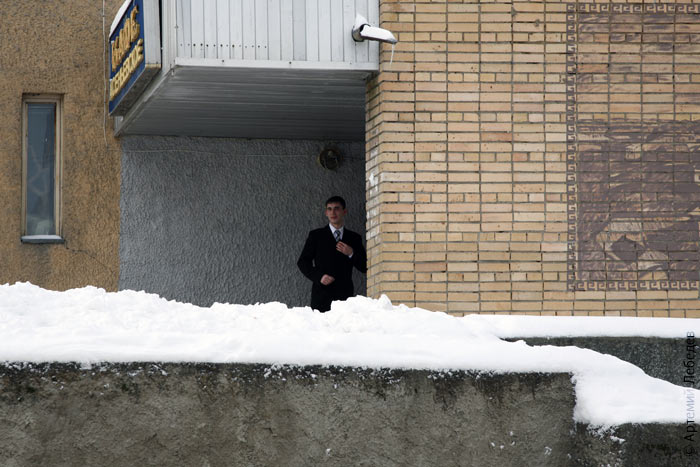 I am ready to make a move when the guy yells out: — Can you email me the pic? — I sure can! — Maxcat at mail dot ru! There are heaps of churches and wooden houses in this town. 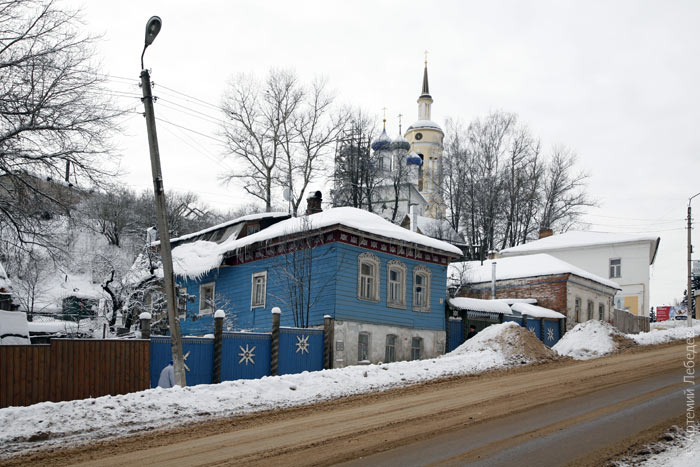 In contrast to neighbouring Balabanov, there’s a truly unique atmosphere palpable in this place. 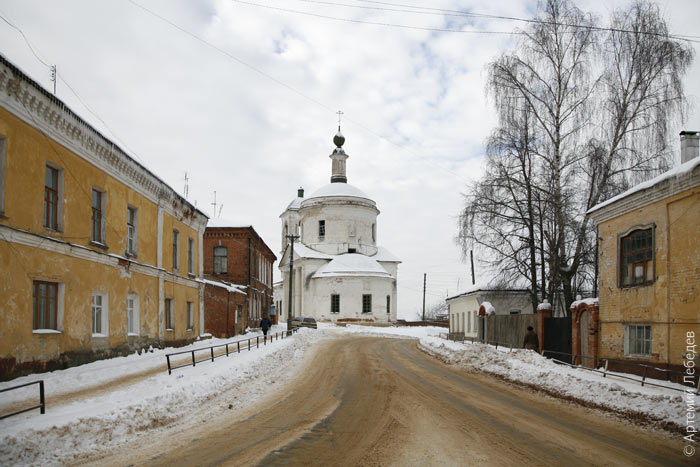 There are hardly any undamaged traffic signs. They’re all bent. 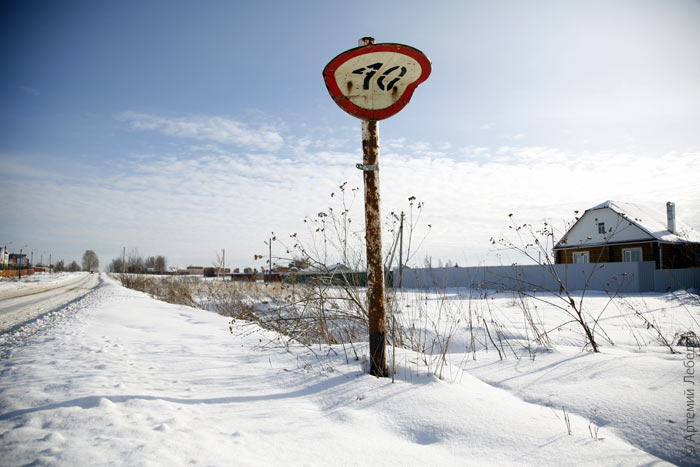 There’s someone who’s actually in charge of this process: 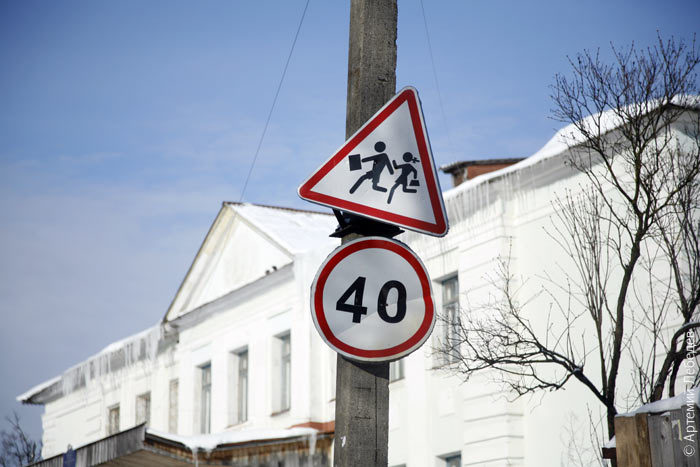 Whilst traffic signs are easy to bend, crosses are a lot more work: 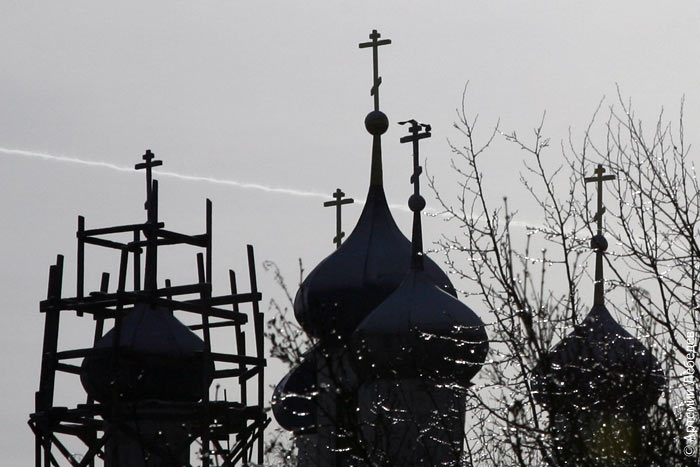 Unbendable plastic signs have become so faded over the course of twenty years that they’re almost transparent (back in Soviet times they did toy with the idea of lighting up signs from the inside): 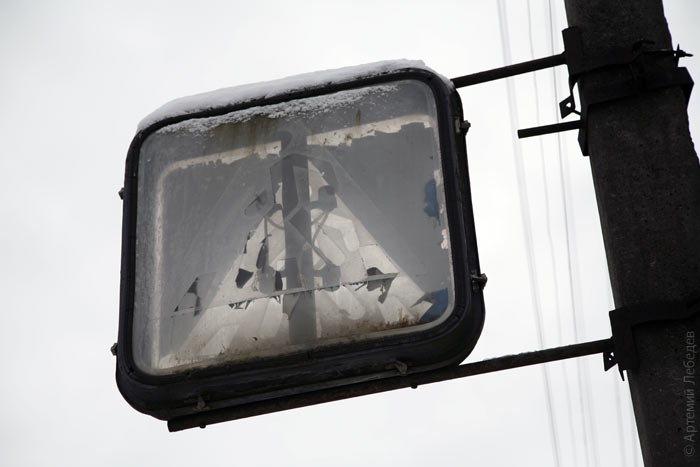 The central square is where all of the religions congregate. 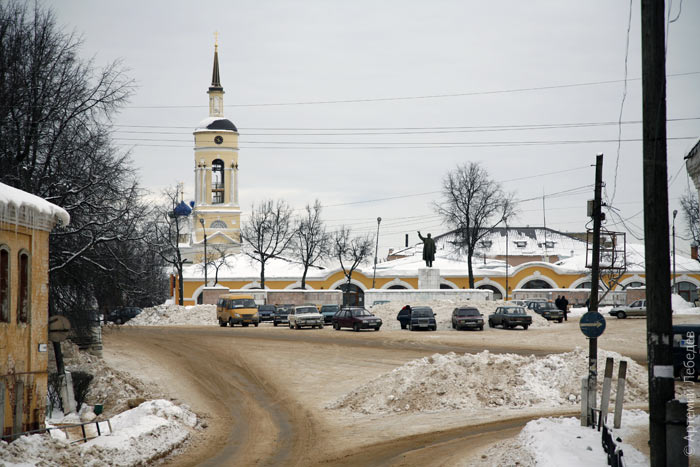 Tsiolkovsky lived in Borovsk for some time. That’s why across the road from the town hall there’s a miniature version of the VDNH “Conquerors of Space” monument. Through hardships to the stars, literally. 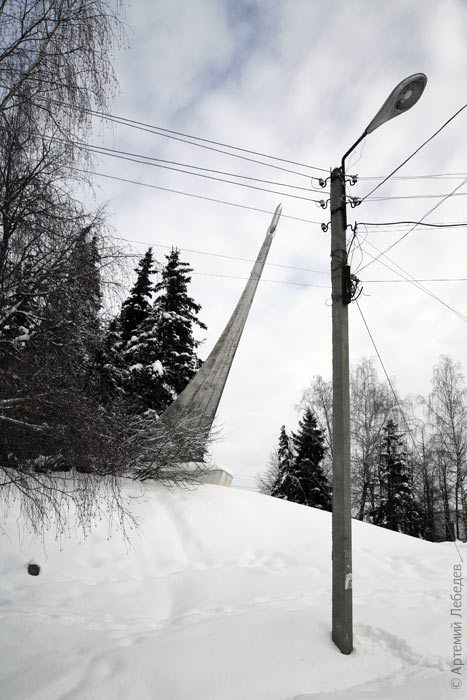 Life in the town is unhurried and uneventful. People gather in the nearby pine forest to eat blinis. The market sells Chinese crap. The town has no cafés or restaurants. “Alesya” has stuck up an update to her previous ad: 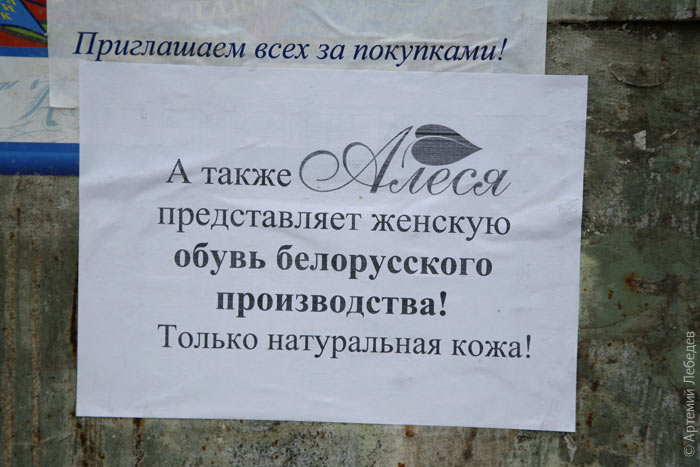
All customers welcome! “Speedy, polite, and chic — that’s taxi ‘Vzhik’!” 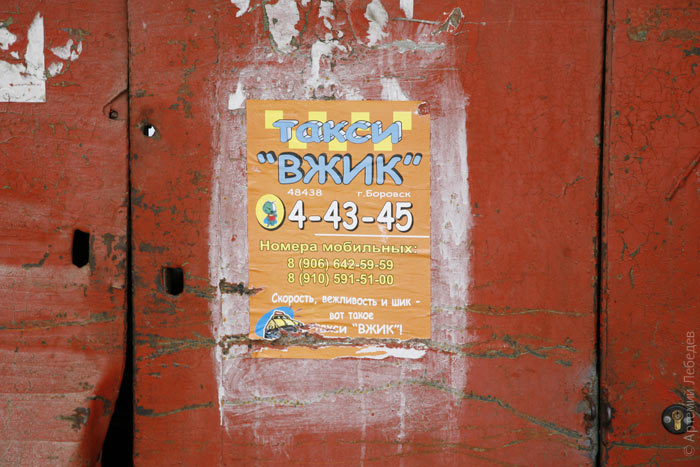 In a word — the Motherland, son. 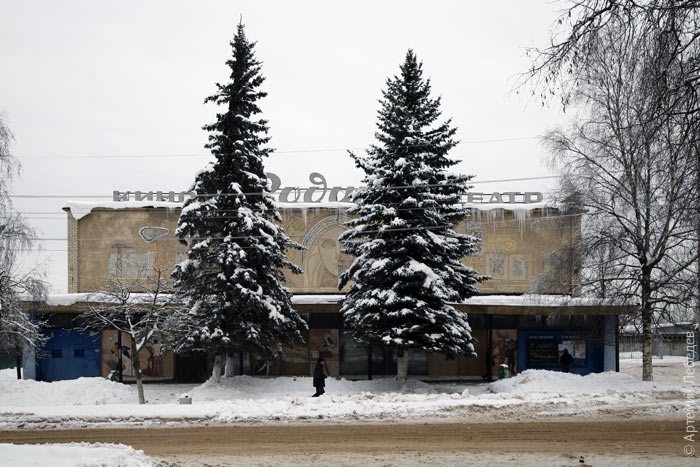 Normally, this is where our story would end, if it were not for a retired engineer by the name of Ovchinnikov, who moved to Borovsk with his wife Elvira. He is terrible at drawing, she writes exceedingly bad poetry. When applied to the town’s walls, their creative union becomes a stroke of genius. Their works run the gamut from ones which are music to the ears of the town authorities: 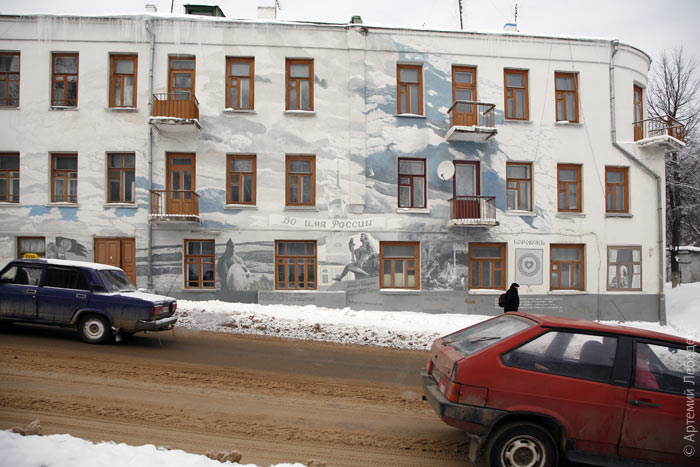 “For the love of Russia” to the certifiably insane: 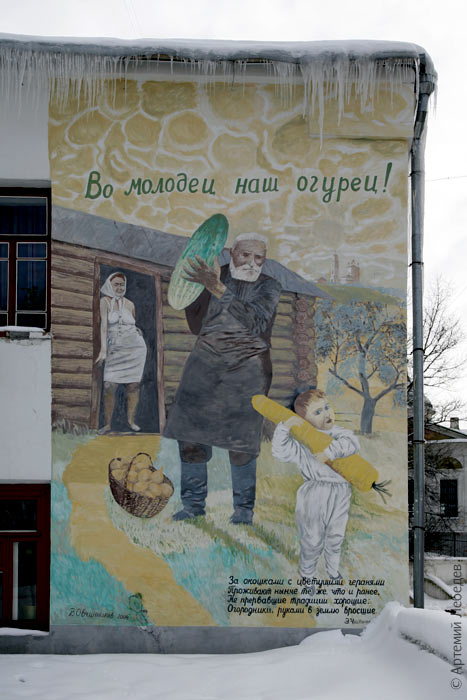 “Great job cucumber!” Humour (legend accompanying the “Borovsk Globe” fresco): 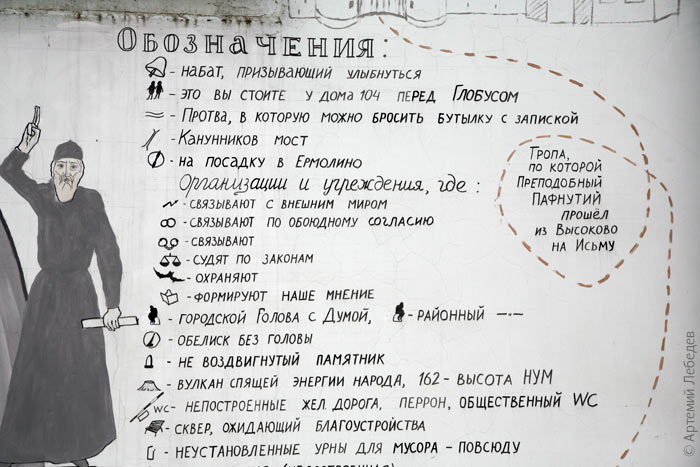
KEY Wit: 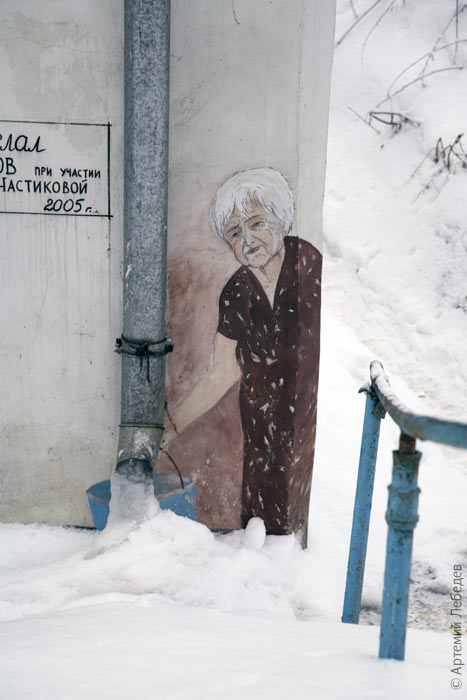 Romance: 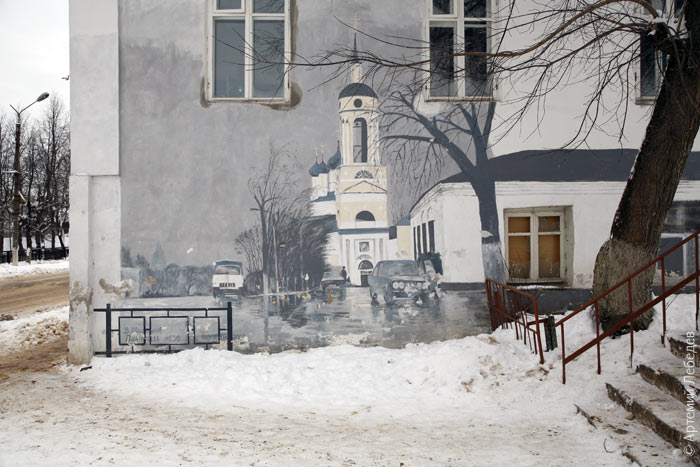 Honest-to-goodness schizophrenia: 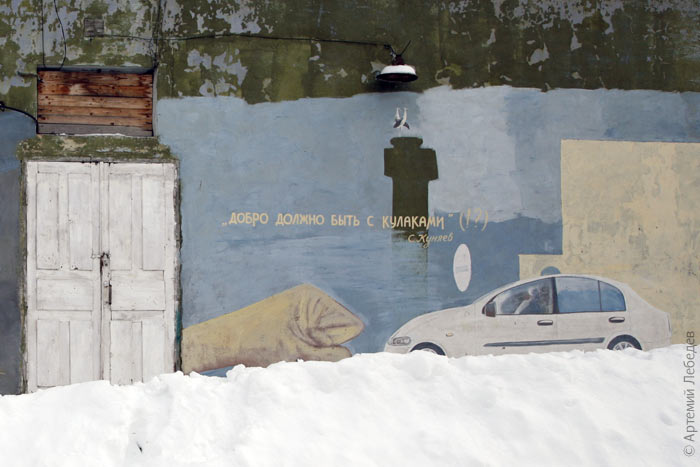
“Goodness needs brawn to back it up” (!?) The poet’s wife penned a poem to go with every fresco. 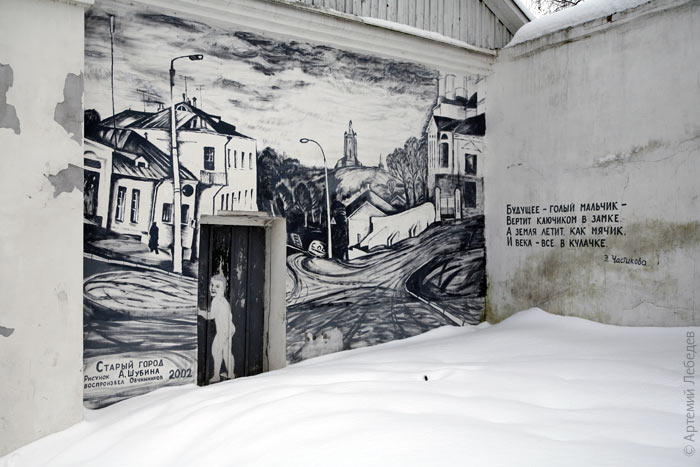
The future — a naked boy — The work entitled “Solving the riddle of the world” does nothing to shed light on the mystery of the Russian soul: 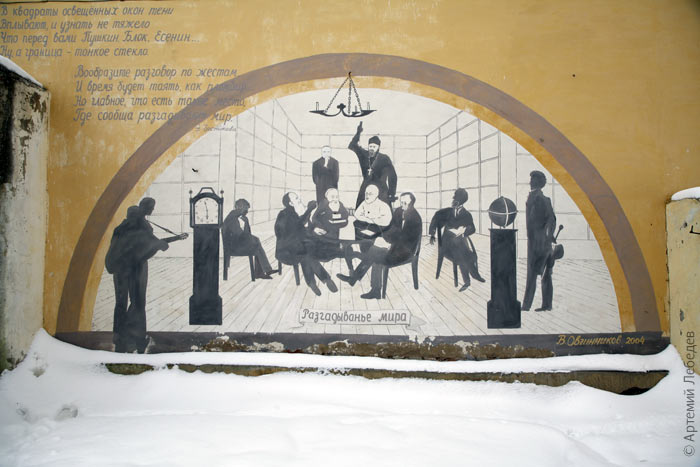 “Who is this (Russian mathematician) Chebyshev, who lived in times gone by?”: 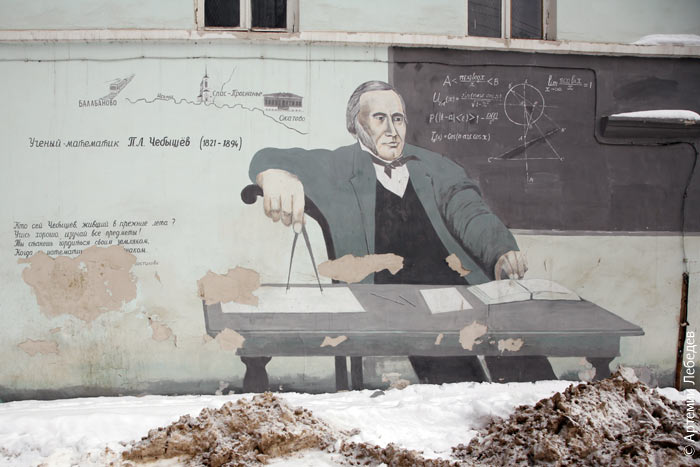 The town authorities, like all city authorities in Russia, are incapable of coming up with anything that can compete with living, breathing art, aside from pseudo-Russian Corel Draw motifs made from Arakal self-adhesive film that is. It would be naive to think that this artwork will attract anyone, the designer’s wife included, to Borovsk. 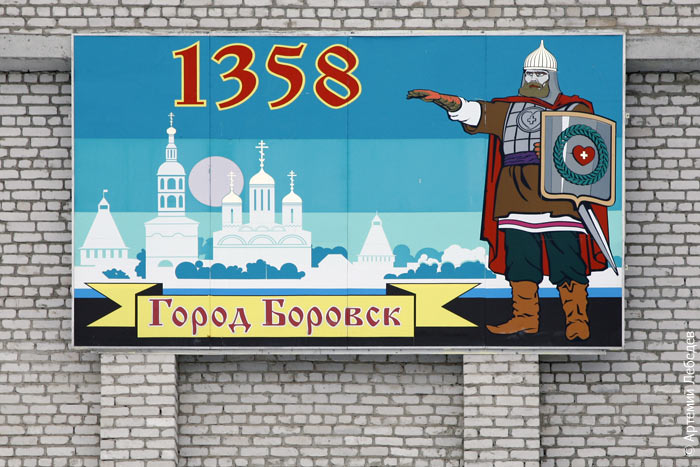 On the side of this brick building Ovchinnikov portrays two theories about where the town got its name (the fresco’s called “The Etymology of Borovsk”). According to one version (difficult to argue with), its name comes from the Russian word borov, which means barrow or boar (Pushkin called Borovsk “a pig town”, that’s how he made it onto the wall). Another version posits that a local pine forest, depicted on the right there, gave the town its name (sure, you keep telling yourself that). 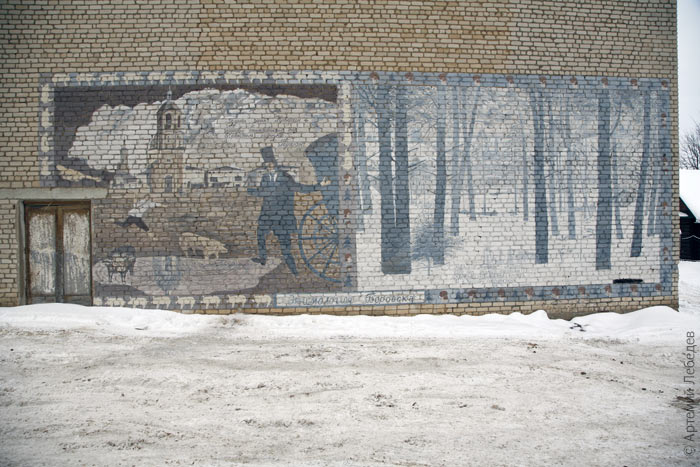 All of Borovsk’s main historical events and personalities have taken their rightful places on the side of one of the buildings. From the fire brigade and the Polezhaev brothers (merchants) to Napoleon: 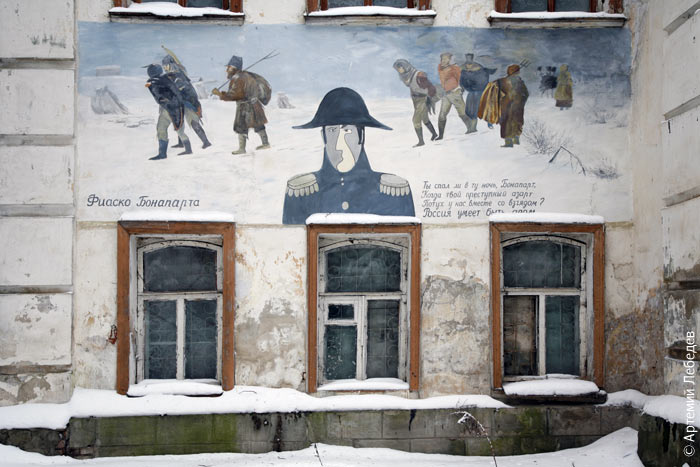 The shop with a “Hot bread” sign never has any. The saleswoman explained the the goods are always delivered at night, meaning they’re guaranteed to go cold by morning. On the bright side, a woman with loaves and dough rings called baranki adorns the side of the building. 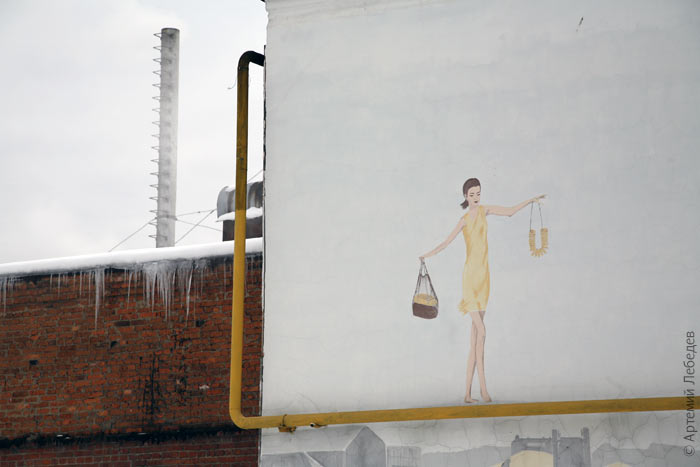 There’s a shit treatment plant on the banks of the river Protva, complete with romantic sailor girl: 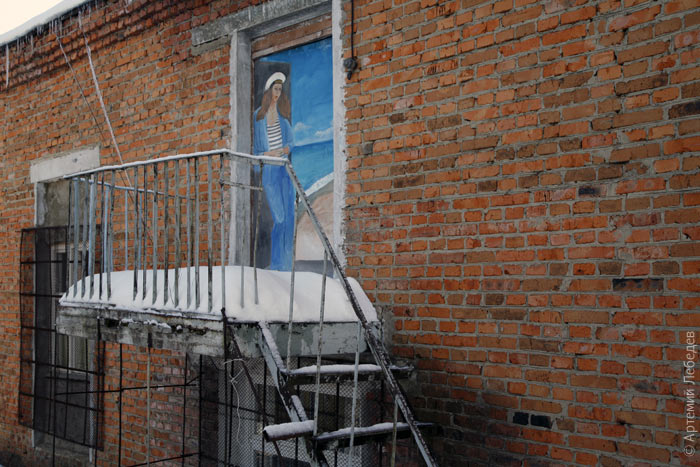 Borovsk put itself on the cultural map thanks to its inimitable, insane frescos: 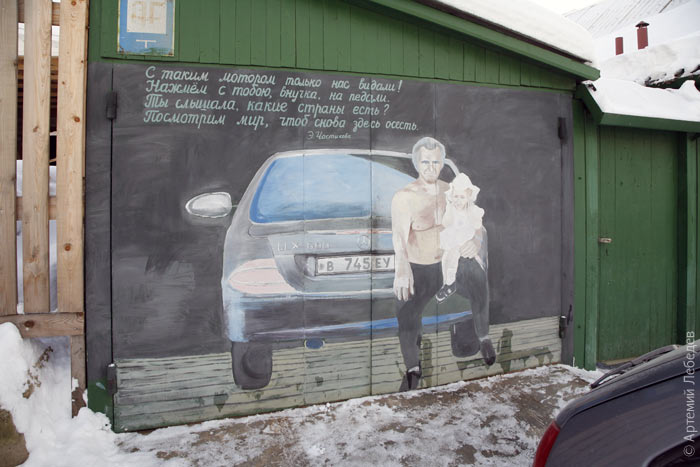
“Look at this motor we’re packing! As you leave the town there’s a brick wall with a horribly drawn car and daisies on it wishing you a “beautiful turn”. 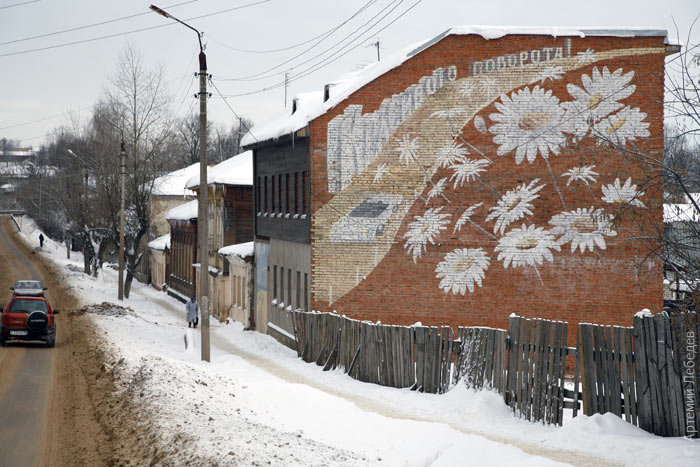 It would be a shame if all of this were to disappear a few years down the line, plunging the town into a lethargic slumber by the name of municipal division settlement town of Borovsk in the Kaluga region. |